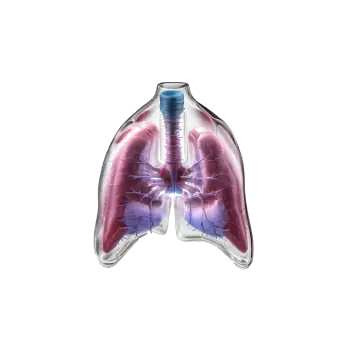Blood test for weight loss
There are several blood values that have a greater impact and are highly relevant to take a closer look at when you aim to lose weight. Strongly deviating blood values for certain specific health markers can affect metabolism and thus your ability to lose weight effectively.
When losing weight, it is at least as important to keep track of your blood values in order to monitor the general health development and ensure that the weight loss takes place in a healthy way.
The health benefits of weight loss
Before we get into specific biomarkers, it is important to understand the overall health benefits of a healthier weight:
- Cardiovascular health: Overweight and obesity are risk factors for high blood pressure, high cholesterol and heart disease. Through weight loss, you can improve your cardiovascular values and reduce the risk of heart problems and cardiovascular disease.
- Insulin resistance and diabetes: Obesity is strongly associated with insulin resistance and type 2 diabetes. By maintaining a healthy weight, you can reduce your risk of developing diabetes.
- Improved respiratory function: Being overweight can affect breathing by reducing lung capacity and increasing the risk of sleep apnea. By avoiding excess weight, you can improve the respiratory function of your physique and thus reduce the risk of respiratory-related problems.
- Reduced joint load: Excess weight causes extra pressure on the joints, which can lead to joint problems and osteoarthritis. By avoiding excess weight, you reduce the load on the joints and the risk of joint-related problems in the future.
- Mental well-being: Weight loss can improve self-esteem and body image, which in turn can result in several positive effects on your mental health.
Biomarkers to follow during weight loss
To give yourself an even better chance before a weight loss plan, it may be beneficial to monitor certain specific biomarkers to ensure that the changes are occurring in a healthy way. Here are some of the most important values to keep track of:
Insulin and blood sugar level
Insulin is a hormone that regulates blood sugar levels in the body. If you are overweight, insulin resistance can occur, which means that the body does not respond adequately to insulin. When losing weight, insulin resistance decreases and the body does not need to produce as much insulin. This can lead to lower blood sugar levels and improved health. Measuring fasting blood sugar glucose as well as long-term blood sugar HbA1C is important to monitor blood sugar levels and ensure they are within healthy limits.
Triglycerides and cholesterol
Triglycerides and cholesterol are two important factors that affect heart health. In the case of overweight and obesity, high levels of triglycerides and LDL-cholesterol can increase the risk of heart disease. Triglycerides is a type of fat found in the blood and high levels of triglycerides are a risk factor for heart disease. In overweight and obesity, the liver can overproduce triglycerides. When losing weight, the amount of fat in the liver decreases and triglyceride levels also decrease. This can lead to a reduced risk of heart disease.
CRP and inflammation
CRP or lower is a protein marker used to assess inflammation in the body. Overweight and obesity levels of CRP are usually higher because these conditions can cause low-grade inflammation. With weight loss, inflammation decreases and CRP levels decrease as well. This can lead to a reduced risk of inflammatory diseases such as heart disease and diabetes.
Thyroid hormones
The thyroid hormones are crucial for the regulation of the metabolism in your body. If the thyroid gland is underactive (hypothyroidism) and the production of T3 and T4 is low, this can lead to a slower metabolism. A low metabolism can make it difficult to lose weight, even with a healthy diet and exercise. Hypothyroidism should be treated with medication to optimize metabolism.
Iron and vitamin D
If the body suffers from nutritional deficiencies, such as iron deficiency or vitamin D deficiency, it can negatively affect energy levels and metabolism. It can make it more difficult to engage in physical activity and thereby affect weight loss.
Liver function (AST, ALT, GT, bilirubin)
These markers provide information about your liver health and can indicate whether there is fatty liver or other related risks that may be important to review.
BMI (Body Mass Index)
Your BMI is the measure of your total body fat based on your weight and height. This gives you an idea of the degree of excess weight and is a common evaluation method for weight loss.
Weight loss does not always lead to improved values
It is important to point out that weight loss does not always lead to an improvement in all blood values and other health problems. Some people may have normal values for certain biomarkers despite being overweight or suffering from other health problems. It is also possible that some blood values may increase temporarily before stabilizing or decreasing with weight loss. It is therefore important to consult a doctor or health expert to monitor your health and assess which measures are most suitable for you.
In summary, weight loss and improvements in blood values can contribute to improved health and quality of life. It can reduce the risk of many diseases and help prolong life. But remember that a healthy lifestyle is not just about weight loss, but should focus on a holistic view of health, including a balanced diet, regular physical activity, enough sleep, stress management and good mental health.
























